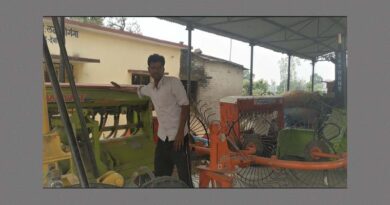Plant breeding of oats is taking new leaps
20 May 2022, Sweden: Researchers at Lantmännen’s research company CropTailor and at ScanOats in Lund have sequenced the entire genome of oats. This opens new opportunities for developing oats that are healthier and that can be grown in a more sustainable way.
Lantmännen-owned research company CropTailor has, together with researchers from ScanOats at Lund University, mapped and characterized oats and their entire genome. The results are now published in the highly reputable journal Nature and can be downloaded here [link].
“Lantmännen already has a very successful plant breeding program on oats. As we now gain increased knowledge about the oat genome, we have a new and strong tool that consolidates our position as a world-leading entity in oat research and breeding,” says Annette Olesen, Plant Breeding Director at Lantmännen.
In parallel with the work at ScanOats and the publication in Nature, Lantmännen is driving the development in the field of plant breeding with a particular focus on Nordic conditions and right now major investments are being made at the facilities in Svalöv, Skåne.
Also Read: IIT roorkee and garuda aerospace partner for drone training across india
“New cultivation chambers, new instruments for reading DNA sequences and enhanced computing power will make Lantmännen’s plant breeding facility one of the world’s most advanced. Gaining knowledge about a crop’s entire gene set is an important piece of the puzzle to be able to develop improved crops with the help of modern technology. In this way, we can become faster and more efficient in our work to provide Swedish farmers with oat varieties that can withstand a changing climate, that can be grown in a sustainable way and that are healthier for the consumer,” says Alf Ceplitis, Population breeding Manager at Lantmännen and CEO of CropTailor.
Plant breeding is crucial for a sustainable and viable agriculture sector and an innovative and forward-looking food industry. Within this field, new knowledge about the crops that are grown and consumed, play a vital role.
“Plant breeding is currently undergoing a technological shift and the research carried out here shows that we, in Sweden, are at the forefront of this development. That is truly promising for the future,” concludes Alf Ceplitis.
The project has been funded by CropTailor, Lantmännen’s Research Foundation, the Swedish Foundation for Strategic Research (SSF) and Lund University.















